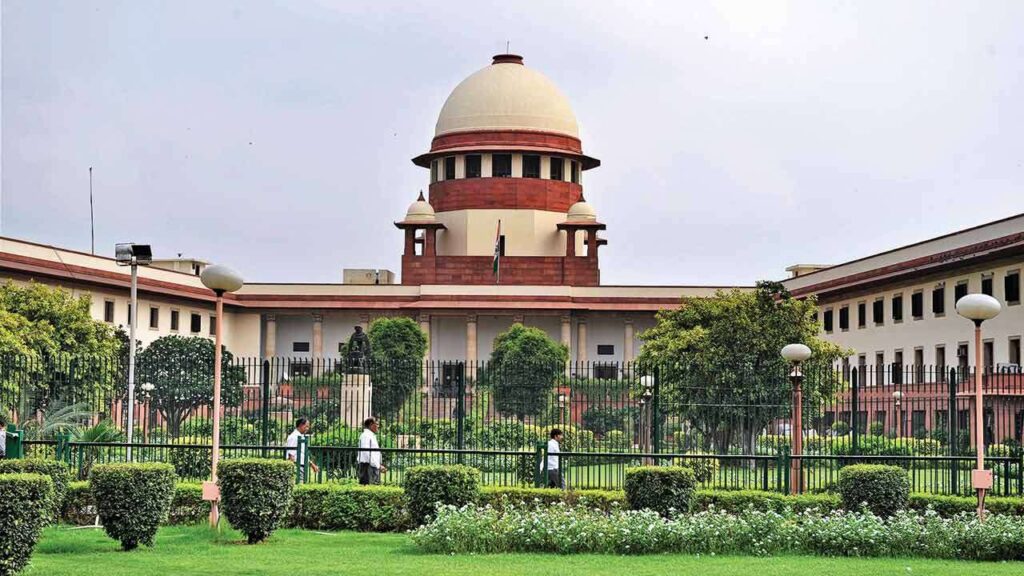Table of Contents
Introduction
The article published in the editorial section of The Hindu Newspaper talks about the recent supreme court, ‘s view on the bulldozer politics which happens in several states of India.
Background Information
Bulldozer justice or bulldozer politics refers to the practice of using bulldozers to demolish the homes and businesses of people accused of crimes or involvement in communal violence. This has been seen in various states across India, including Uttar Pradesh, Delhi, Madhya Pradesh, Gujarat, Assam, and Maharashtra. This practice was started by the CM of Uttar Pradesh Yogi Aditya Nath followed by the former CM of Madhya Pradesh Shivraj Singh Chauhan.
Supreme Court’s View: The Supreme Court has clearly stated that demolishing someone’s property just because they are accused of a crime is not lawful. Even if a person is found guilty, their property cannot be destroyed without following the proper legal procedures. The court emphasized that the process must be fair, and there is a need for nationwide guidelines to ensure this
The practice of bulldozer justice raises several significant concerns. It disproportionately affects marginalized and minority communities, worsening social inequalities. By bypassing established legal procedures, it undermines the rule of law and erodes public trust in political institutions. Moreover, it often violates basic human rights, particularly the right to shelter, and raises ethical issues by conflating the roles of judge, jury, and executioner, leading to potentially unjust outcomes. The lack of compensation or resettlement for those affected only adds to the ethical dilemmas, while the sudden and violent nature of these demolitions can cause severe psychological trauma to both individuals and entire communities.

Article Explanation
The Supreme Court of India has expressed concern about the legality of using bulldozers to demolish the homes of people accused of crimes as a form of punishment. In states governed by the BJP, there have been cases where Muslim homes were specifically targeted for demolition. The Court believes that if it can put an end to these unlawful actions, it would be a positive step.
Justice B.R. Gavai highlighted that no one’s home should be destroyed just because they are accused of a crime, even if they are found guilty. The Court is aware that bulldozers have become a symbol of collective punishment, often used against people labelled as rioters, without considering that innocent family members might also live in those homes.
While local laws do allow for the removal of illegal constructions, the Court plans to create uniform guidelines across India to ensure that any action taken follows the proper procedures. This includes correctly identifying unauthorized structures, issuing proper notices, and giving people a fair chance to defend themselves before any demolition occurs.
However, the Court must be careful that these guidelines don’t give the impression that the link between communal violence and the demolitions that follow can be hidden through administrative tricks. In some cases, authorities have produced backdated eviction notices to justify demolitions, which suggests a political and communal motive behind these actions. While digitalizing eviction notices could help prevent this problem, it may not be feasible everywhere.
The real issue the Court needs to address is whether claiming that only illegal structures are being demolished is enough to justify the obvious violations of law and fairness in recent cases in states like Uttar Pradesh, Madhya Pradesh, Haryana, and Delhi. It’s becoming clear that the ruling party in these states is using these demolitions to gain political support by appearing tough on crime, while actually targeting specific communities under the cover of an anti-encroachment campaign.
.
.
.
.
.
join our telegram channel for regular updates of The Hindu Epaper Editorial Explanation-https://t.me/Thehindueditorialexplanation
The Hindu Epaper Editorial Explanation given by Hello Student is only a supplementary reading to the original article to make things easier for the students.
In conclusion, preparing for exams in India can be a daunting task, but with the right strategies and resources, success is within reach. Remember, consistent study habits, effective time management, and a positive mindset are key to overcoming any academic challenge. Utilize the tips and techniques shared in this post to enhance your preparation and boost your confidence. Stay focused, stay motivated, and don’t forget to take care of your well-being. With dedication and perseverance, you can achieve your academic goals and pave the way for a bright future. Good luck!
The Editorial Page of The Hindu is an essential reading for all the students aspiring for UPSC, SSC, PCS, Judiciary etc or any other competitive government exams.
This may also be useful for exams like CUET UG and CUET PG, GATE, GMAT, GRE AND CAT
To read this article in Hindi –https://bhaarat.hellostudent.co.in/

